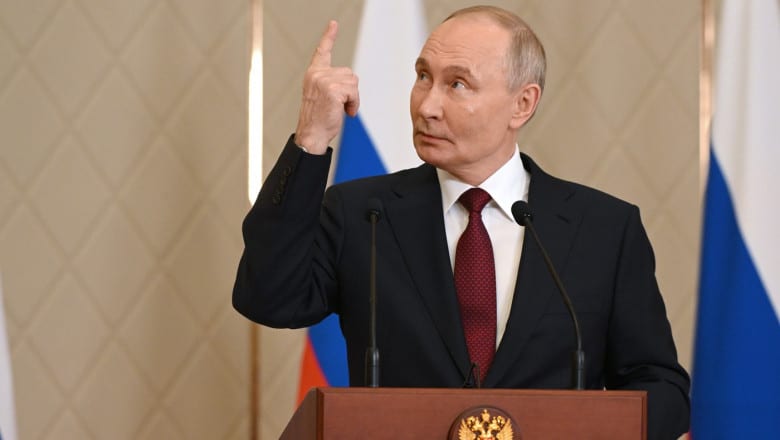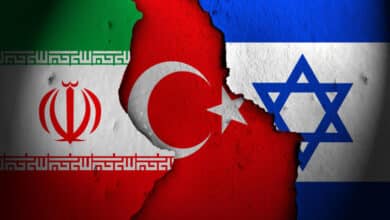
Russian President Vladimir Putin has declared that Russia is prepared for a missile standoff with the United States
Russian President Vladimir Putin has declared that Russia is prepared for a missile standoff with the United States, raising tensions amid ongoing geopolitical friction between the two nations. Putin’s comments, likely intended to project strength and deterrence, underscore the fragility of strategic stability between the world’s two largest nuclear powers.
Context of Putin’s Statement
- Strategic Arms Control Breakdown:
- Putin’s remarks come at a time when key arms control agreements have either collapsed or are under severe strain:
- INF Treaty (Intermediate-Range Nuclear Forces Treaty) was dissolved in 2019.
- The future of the New START Treaty (the last remaining bilateral nuclear arms control agreement) is uncertain, as Russia suspended its participation in inspections in early 2023.
- Putin’s remarks come at a time when key arms control agreements have either collapsed or are under severe strain:
- U.S.-Russia Relations:
- Relations between the U.S. and Russia have reached historic lows due to:
- Russia’s ongoing invasion of Ukraine.
- Accusations of Russian interference in Western democracies.
- Economic sanctions imposed on Russia by the U.S. and its allies.
- Relations between the U.S. and Russia have reached historic lows due to:
- Military Developments:
- Both nations are modernizing their nuclear arsenals. Russia has showcased new strategic weapons systems, including:
- The Sarmat ICBM (Intercontinental Ballistic Missile).
- The hypersonic Avangard glide vehicle.
- The nuclear-powered Poseidon underwater drone.
- The U.S. is also investing in next-generation ICBMs and hypersonic weapon systems.
- Both nations are modernizing their nuclear arsenals. Russia has showcased new strategic weapons systems, including:
Key Elements of a Potential “Missile Duel”
- Strategic Deterrence:
- Putin’s rhetoric is likely intended to reinforce Russia’s nuclear deterrent and warn the U.S. and NATO against further escalation.
- By invoking the idea of a missile standoff, Putin may seek to deter Western support for Ukraine or other military actions near Russia’s sphere of influence.
- Nuclear Posturing:
- Russia’s willingness to engage in a missile confrontation signals an assertive posture intended to:
- Strengthen domestic support by projecting defiance.
- Undermine Western confidence in their ability to contain Russia.
- Russia’s willingness to engage in a missile confrontation signals an assertive posture intended to:
- Risk of Miscalculation:
- Heightened nuclear rhetoric increases the risk of miscalculation or unintended escalation, particularly as traditional communication channels between the U.S. and Russia have weakened.
U.S. and NATO Response
- Measured Deterrence:
- The U.S. has maintained a stance of strategic restraint while reinforcing NATO’s eastern flank and continuing support for Ukraine.
- The U.S. has also committed to modernizing its nuclear triad to ensure credible deterrence.
- Diplomatic Channels:
- Despite hostilities, the U.S. continues to express interest in dialogue on arms control and strategic stability. However, meaningful negotiations are stalled due to geopolitical tensions.
- Allied Coordination:
- NATO remains united in the face of Russian threats, conducting regular exercises and strengthening air and missile defense systems.
Implications for Global Security
- New Arms Race:
- The collapse of arms control treaties and continued development of advanced missile systems could lead to a new nuclear arms race.
- Strategic Instability:
- Increased nuclear rhetoric undermines decades of efforts to reduce the risk of nuclear conflict and maintain strategic stability.
- Pressure on Non-Nuclear States:
- Nations in Europe and Asia may face heightened security risks and pressure to develop or host advanced missile defense systems.
Conclusion
Putin’s statement about Russia being ready for a “missile duel” with the U.S. highlights the growing dangers of nuclear brinkmanship. While likely intended as a deterrent message, such rhetoric escalates tensions and increases the risk of miscalculation. Efforts to revive arms control discussions and rebuild diplomatic channels are crucial to preventing a new and dangerous phase of strategic confrontation between the two nuclear superpowers.
